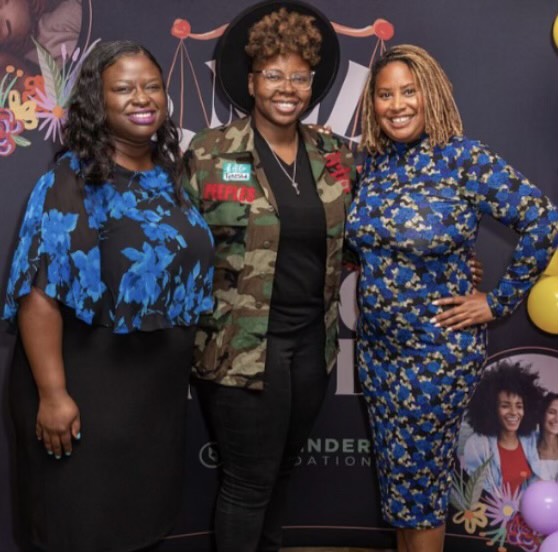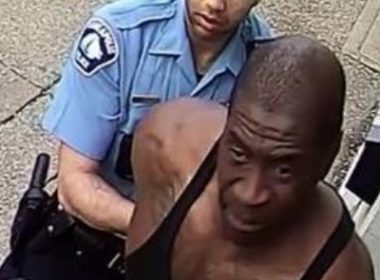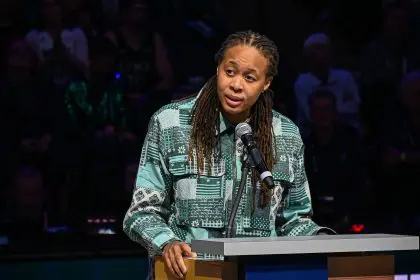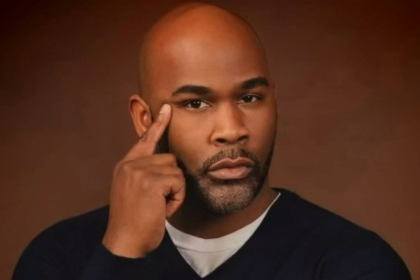
The National Coalition of Black and Brown women and mothers wrote a powerful letter to president Joe Biden in response to his recent announcement of pardoning marijuana offenders from prison.
Dear President Joe Biden,
We write to you today as a Coalition of Black and Brown women and mothers who have seen and experienced firsthand the devastating impacts of the War on Drugs on our communities and the collateral consequences experienced by those with low-level drug convictions.
For many years incarcerated people, their family members, activists, and organizers have called on people with power to use some of their authority to end the War on Drugs.
“It is in light of these cries that we applaud and welcome your announcement yesterday that you are pardoning individuals who were convicted at the federal level for simple marijuana possession. We also appreciate that you called attention to the collateral consequences that often accompany drug convictions, and the draconian laws that continue to unnecessarily classify cannabis as a Schedule 1 Drug,”
Nekima Levy Armstrong, civil rights attorney and Executive Director, Wayfinder Foundation.
“Even though I became the “Poster Child” for federal drug sentencing gone wrong in the 1990’s, and was granted executive clemency by President Clinton in December, 2000, there are still many other incarcerated women of color, like my friend Michelle West, who are waiting on their opportunity to live lives that would overshadow who they used to be, if given the opportunity. Clemency is her only hope,”
Kemba Smith, Former Drug War Prisoner and author of “Poster Child: The Kemba Smith Story.”
“Your decisions represent a necessary – and long overdue – change that will affect thousands of people who were convicted under federal drug laws (and rules governing the District of Columbia). “However, as one of the architects of the 1996 Crime Bill, you are likely aware that there are millions more people who are trapped under the crushing weight of other federal and state laws that use drugs as an excuse to criminalize poverty and mental health,”
Chauntyll Allen, Director of Criminal Justice Policy and Activism, Wayfinder Foundation.
We demand sweeping changes, not just in regard to federal marijuana convictions, but to the entire set of laws that comprise the War on Drugs and that have led to mass incarceration in the United States.
Further, the federal government should pay reparations to the people and families affected by the War on Drugs. According to the ACLU, Black women are more than three times as likely as white women to be incarcerated, and Latinas are 69% more likely to be incarcerated than white women. A disproportionate number of these women are low income and mothers of children under age 18.
When mothers are incarcerated, their families don’t just lose a primary caretaker, but also a primary wage earner. The effects of low income women’s imprisonment exacerbate the economic inequalities that affect historically marginalized families and communities, while compounding economic consequences for generations to come. Low income Black and Brown women have also suffered turmoil from the loss of their parental rights due to marijuana possession and drug convictions. We demand a plan for the restoration and reunification of children and families caught in the drug war and an acknowledgment of the harms that have been caused.
Formerly incarcerated people are routinely denied access to jobs that pay a living wage, while unjust laws make it harder for families of incarcerated people to live in public or subsidized housing. Young people with drug convictions have lost access to federal Pell Grants, which remains one of our society’s primary mechanisms for upward economic mobility for low income students. None of the wealth stolen due to the drug war and mass incarceration has been returned to the people, and we will not stop fighting until it is.
We agree with your call to action to other leaders, including governors, to make changes at the state level to address the impacts of marijuana convictions for simple possession. However, we ask that you take things further by pushing for the repealing and dismantling of all the legislation that holds up the house of cards that comprises the War on Drugs. We note, especially, the Congressional Black Caucus, which should play a stronger leadership role in unwinding the implicated federal policies, including mandatory minimums and the sentencing guidelines in drug cases, the egregious statutory differentials in sentencing for crack cocaine versus powder cocaine, the loss of discretion of federal sentencing judges, as well as draconian drug conspiracy laws— which prosecutors use disproportionately to punish low income people of color, often outside of the court’s purview.
State laws must change as well, as there are more than twelve times as many people incarcerated at the state or local level for drug offenses, compared to the federal level. States should repeal the laws that have these disparate effects, while using the other tools at their disposal to alleviate ongoing harm in the short term. That should include issuing their own pardons, restoring felon voting rights, freeing drug prisoners, expunging criminal records of those affected, and decriminalizing marijuana, at the very least. The individuals who have faced unjust incarceration as a result of the drug war should also receive reparations as a result of the significant and irreparable harms they have experienced.
Finally, states and the federal government must reinvest the funds being wasted on every aspect of the War on Drugs back into low income communities of color. Black and brown communities in particular require deeper investments in high quality employment opportunities, affordable housing and home ownership programs, youth programming, education, and youth entrepreneurship. We also demand additional resources for re-entry services, so that people returning from jails and prisons are able to more successfully reintegrate back into society.
Thank you for taking important, yet long overdue action steps towards decriminalizing marijuana. At the same time, we urge you to go deeper in pushing for an end to the War on Drugs and setting more people free from unjust and unnecessarily harsh punishment for drug-related crimes.
We would welcome the opportunity to meet with you and other leaders to discuss our concerns and demands. Too often, the voices of Black and Brown women are not being heard when it comes to public policy matters like these, which impact us most directly. Thank you in advance for your consideration.
Sincerely,
Nekima Levy Armstrong Esq., Executive Director, Wayfinder Foundation and Attorney
Chauntyll Allen, Director of Criminal Justice Policy and Activism
Kemba Smith, Criminal Justice Advocate and Author
Raeisha Williams, Director of Communication and Events
Zakiya Sankara-Jabar, Director of Education Policy and Activism
Melina Abdullah, Activist
Shaundelle Darris Operations Coordinator Wayfinder Foundation
Satara Strong, Executive Director, Love First Community Engagement
Marea Perry, Executive Director, Secrets2Truths.inc
Leslie Redmond, Founder Don’t Complain Activate and Attorney
Titilayo Bediako, Executive Director, We Win Institute
Rosemary Nevills, Founder, African American Center of Minnesota
Jayda Pounds Operations Assistant Wayfinder Foundation
Romona Williams, Organizer and Jackson, MS Resident
Latanya Ward, Executive Director, We Are Responsible For One Another (WARFOA)
Anika Bowie, Executive Director, Run Like Harriet
Zaynab Mohamed, Organizer, Wayfinder Fellow
Kissy Coakley, Criminal Justice Advocate, Stay Put Services
Helen Jones, Criminal Justice Advocate and Wayfinder Fellow
Kennedy Pounds, Founder, Black Poetic Justice

















